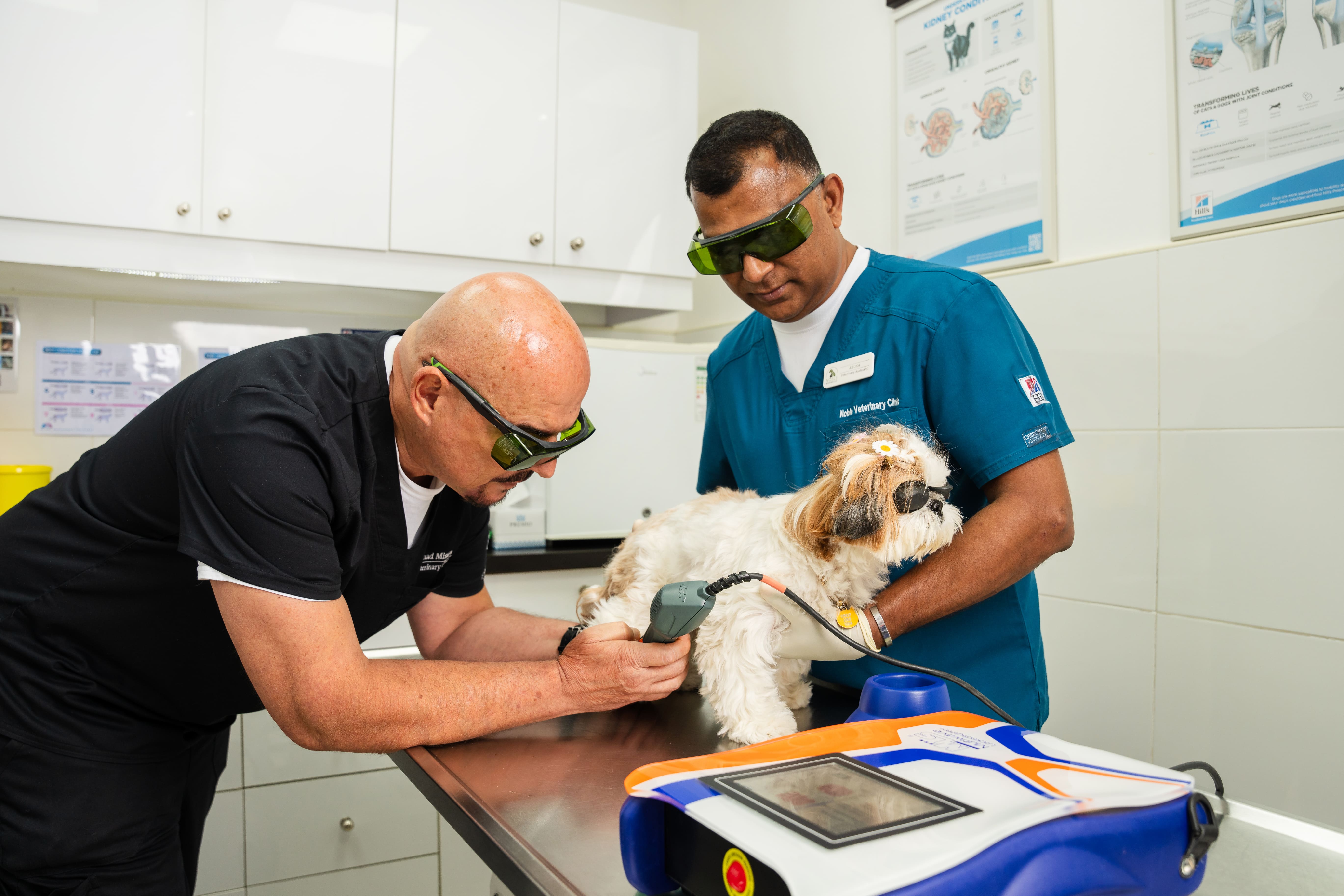12 فبراير 2025
You’ve probably given your dog a sweet treat or two. Whether it’s a bite of your cookie, a spoonful of ice cream, or even a piece of fruit, these small treats can seem harmless at first. But can dogs eat sugar?
The short answer is no. Dogs should not eat sugar. While sugar itself isn’t toxic to dogs, it’s not exactly good for them, either. In small amounts, natural sugars found in fruits are generally safe. However, processed sugars and artificial sweeteners can lead to several health problems, from obesity and diabetes to dangerous toxicity in the case of xylitol.
In this guide, we’ll break down the different types of sugar, their effects on your dog’s health, and safe alternatives to keep your pup happy and healthy.
Types of Sugar Dogs Eat
To better understand whether dogs can eat sugar, it’s important to know that not all sugars are the same. Some occur naturally in foods like fruits, while others are added to processed snacks and desserts. The way these sugars affect your dog’s health can vary significantly.
Natural Sugars
Sugars from natural sources, such as fructose and lactose, are generally safer for dogs in small amounts. Many fruits, like blueberries and apple slices, contain beneficial vitamins, fiber, and antioxidants. This essentially makes them a healthier option rather than processed treats. However, too much fruits can still be bad for your dogs.
Added Sugars
Added sugars, such as sucrose, are commonly found in baked goods, candies, and processed foods. While not immediately toxic, regular consumption can contribute to weight gain, dental issues, and blood sugar imbalances in dogs. Since dogs don’t process sugar as efficiently as humans, even small amounts over time can lead to health problems.
Artificial Sweeteners
Some artificial sweeteners are safe for humans but extremely dangerous for dogs. Xylitol, a common artificial sweetener usually in sugar-free gum, candy, and some peanut butter brands, is highly toxic to dogs. Just a tiny amount can cause a drop in blood sugar and, potentially, liver failure. Other artificial sweeteners like aspartame and sucralose are less dangerous but can still cause digestive upset.
Dogs don’t need sugar, they need you. Your love, care, and healthy choices are the sweetest things in their life.
- Dr. Rokas Proscevicius
What Happens When Dogs Eat Too Much Sugar?

Feeding your dog sugar may seem harmless, but even small portions over time can lead to serious health issues. While an occasional bite of a cookie might not cause immediate harm, regular sugar consumption can negatively impact your dog’s overall health.
Here are the possible risks when dogs eat too much sugar:
Digestive Upset
A dog’s digestive system is not designed to process large amounts of sugar. Eating too much can make your dog vomit and cause stomach discomfort. Some dogs are more sensitive than others, and even a small sugary treat can lead to bloating, gas, and diarrhea.
Obesity and Weight Gain
Sugar is packed with empty calories, meaning it provides no nutritional value while contributing to weight gain. Over time, weight issues and obesity in dogs will lead to more serious issues like joint pain, heart disease, and decreased lifespan. Certain breeds, such as Beagles, Dachshunds, and Basset Hounds, are especially prone to weight-related problems.
Dental Problems
Just like in humans, sugar can lead to dental problems, tooth decay, and gum disease in dogs. Sugar easily leads to plaque buildup, cavities, and bad breath. Since dogs don’t brush their teeth as frequently as humans, dental disease can progress quickly, leading to pain and expensive vet treatments.
Diabetes
Regular sugar intake can put stress on a dog’s pancreas, increasing the risk of diabetes mellitus. This condition affects your dog’s body’s ability to regulate blood sugar, requiring lifelong management with diet, insulin injections, and vet care. Dogs with diabetes can often experience excessive thirst, frequent urination, weight loss, and lethargy.
Pancreatitis
Canine pancreatitis is a condition that involves the inflammation of the pancreas, often triggered by high-fat or sugary foods. This condition can be painful and life-threatening, causing vomiting, abdominal pain, fever, and appetite loss. Certain breeds, like Miniature Schnauzers and Yorkshire Terriers, are more prone to pancreatitis and should avoid sugar completely.
Heart Disease
A diet high in sugar or frequent sugar consumption can contribute to high blood pressure, unhealthy cholesterol levels, and heart disease in dogs. Excess weight and inflammation from sugar consumption put extra strain on the heart. This results in poor circulation, difficulty breathing, and reduced stamina.
Liver Problems
Too much sugar consumption can put excessive stress on a dog’s liver. The liver helps in metabolizing sugars and filtering toxins, but when overloaded with excess sugar, it can develop fat deposits and inflammation, leading to fatty liver disease.
Weakened Immune System
Too much sugar can weaken a dog’s immune system and disrupt the balance of healthy bacteria in the gut. This makes them more prone to infections, slower wound healing, and overall poor health. Dogs with high sugar consumption may struggle to fight off common illnesses, which is a huge concern.
Safe Alternatives to Sugar for Dogs

Our dogs still deserve a treat, just not sugary and unhealthy ones. Plus, it’s important to remember treats should only be 10% of your dog’s daily diet, with the rest coming from a balanced, nutritious meal plan.
There are plenty of natural, dog-friendly alternatives that provide flavor without the health risks. Many fruits contain natural sugars but also offer vitamins, fiber, and antioxidants that benefit dogs in moderation. Even though these fruits are safe, they should be fed in moderation since they still contain natural sugars.
Some safe options include:
Apples
Blueberries
Strawberries
Bananas
Watermelon
If you want to give your dog a low-sugar alternative, certain vegetables can be a great snack:
Carrots
Green beans
Cucumbers
Pumpkin
If you prefer store-bought treats, look for all-natural, low-sugar options. Many brands offer single-ingredient treats like freeze-dried meat or vegetable-based chews. Always check ingredient labels and other important information. If you need help, you can always ask our vets about what dogs can eat as treats.
Conclusion
So, can dogs eat sugar? Yes, but they should not. While sugar itself isn’t toxic, it doesn’t offer any benefits to your dog’s health and can result in health problems like obesity, diabetes, dental disease, and even liver damage. Artificial sweeteners, especially xylitol, are extremely dangerous and should always be avoided.
The best way to keep your dog healthy is to limit sugary foods and choose safer alternatives. Fruits, vegetables, and natural, low-sugar treats are great options. Always check ingredient labels and make sure these treats don’t consist too much of your dog’s daily diet.
Subscribe to Our
Newsletter
Sign up for weekly pet health tips and insights from our veterinarians.



